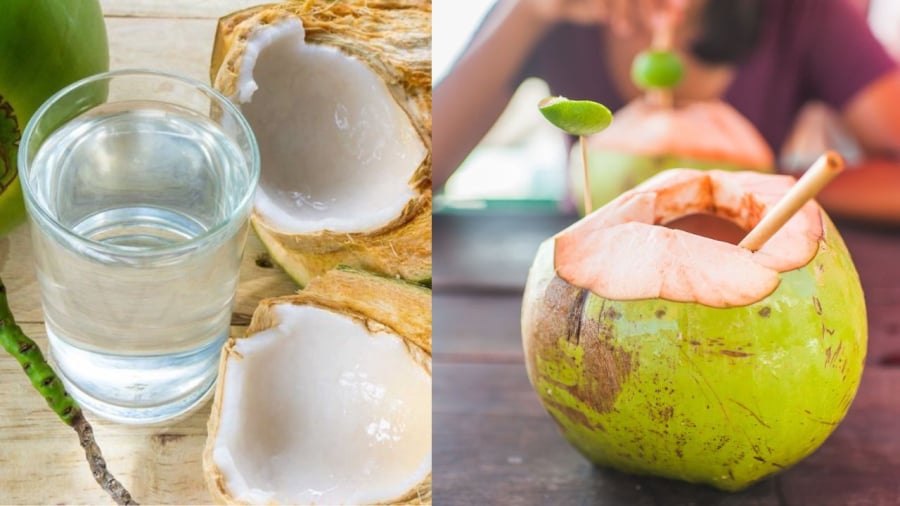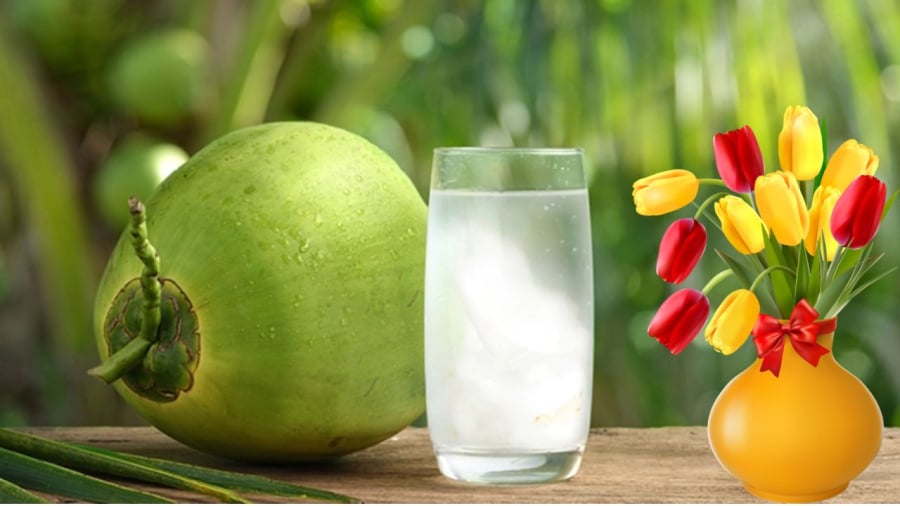A recent news report has brought to light a tragic incident where a man passed away just three hours after consuming coconut water. According to the report published in Emerging Infectious Diseases, the man purchased a pre-cut coconut, which he left on his kitchen counter. When he drank from it using a straw, he noticed an unusual and unpleasant odor. Upon cutting it open, he noticed something strange and discarded it. However, just three hours later, the man started exhibiting symptoms such as sweating, nausea, and vomiting.
Unfortunately, by the time the ambulance arrived, the man was already in a state of confusion, lost his balance, and had cold and pale skin. The doctors discovered that he had severe brain edema and, despite their efforts, he succumbed. The autopsy revealed that the man had succumbed to poisoning from the coconut, which was contaminated with Arthrinium saccharicola, a fungus capable of producing the toxic compound 3-nitropropionic acid. This toxin is known to cause severe brain damage and has been implicated in fatalities in China and Africa.

Precautions when consuming coconut water
Proper storage is crucial if not consumed immediately
Coconut water or partially cut coconuts should be refrigerated. Exposure of the coconut flesh accelerates mold growth. If you prefer drinking coconut water, it is advisable to consume it directly from a fresh coconut and not store it for extended periods.
The coconut husk acts as a protective barrier, and once partially removed, microorganisms can easily invade and proliferate if not properly stored. In addition to the tragic poisoning incident mentioned earlier, coconut water, when left at room temperature, can be contaminated by Clostridium botulinum, a bacterium that can severely affect the nervous system. Notably, this contaminated coconut water may not exhibit any unusual odor.
Moreover, if the coconut water has turned yellowish, appears cloudy, or has a film on its surface, it is best to discard it. Fresh coconuts can be stored in a cool, dry place, away from direct sunlight, for 7-15 days. However, once cut or opened, they must be refrigerated at temperatures between 2-5°C (35-41°F). Coconut water that has been poured into a glass or container should not be left at room temperature for more than two hours.
Avoid excessive coconut water consumption
While coconut water offers numerous health benefits due to its rich mineral content, it should not be consumed daily or in excessive quantities. It is recommended to limit consumption to a maximum of two coconuts per day and avoid making it a daily habit over extended periods. Overconsumption of coconut water can disrupt your electrolyte balance and potentially contribute to weight gain.

Individuals who should exercise caution with coconut water
Individuals with low blood pressure, hyperkalemia, kidney disease, those preparing for surgery, and individuals with a cold constitution or weak digestion should also refrain from consuming excessive coconut water to avoid potential adverse effects.
Do not use coconut water when taking medication
Coconut water may interfere with drug absorption by forming a coating around the medication. Therefore, it is advisable to refrain from consuming coconut water when taking medication and maintain a gap of approximately two hours between the two.
Avoid drinking coconut water late at night
As coconut water can cause digestive issues and increase urination, it is best avoided close to bedtime to prevent disturbances in sleep due to the need to urinate frequently or difficulty falling asleep.
Do not consume coconut water with seafood or ice
When eating seafood, refrain from drinking coconut water simultaneously, and avoid adding ice, as these combinations can lead to digestive issues, especially for individuals with sensitive digestion. The cold nature of these combinations can weaken the digestive system and lead to gastrointestinal disorders.
Avoid drinking coconut water when your body is overheated
After exposure to intense sunlight, strenuous exercise, or heavy labor, it is advisable to wait for your body to cool down before drinking coconut water. Consuming coconut water when your body is still hot can lead to a feeling of weakness and fatigue.
In conclusion, while coconut water is a natural and healthy beverage, it is essential to consume it in moderation, follow proper storage practices, and be mindful of any potential health conditions that may warrant caution.
































